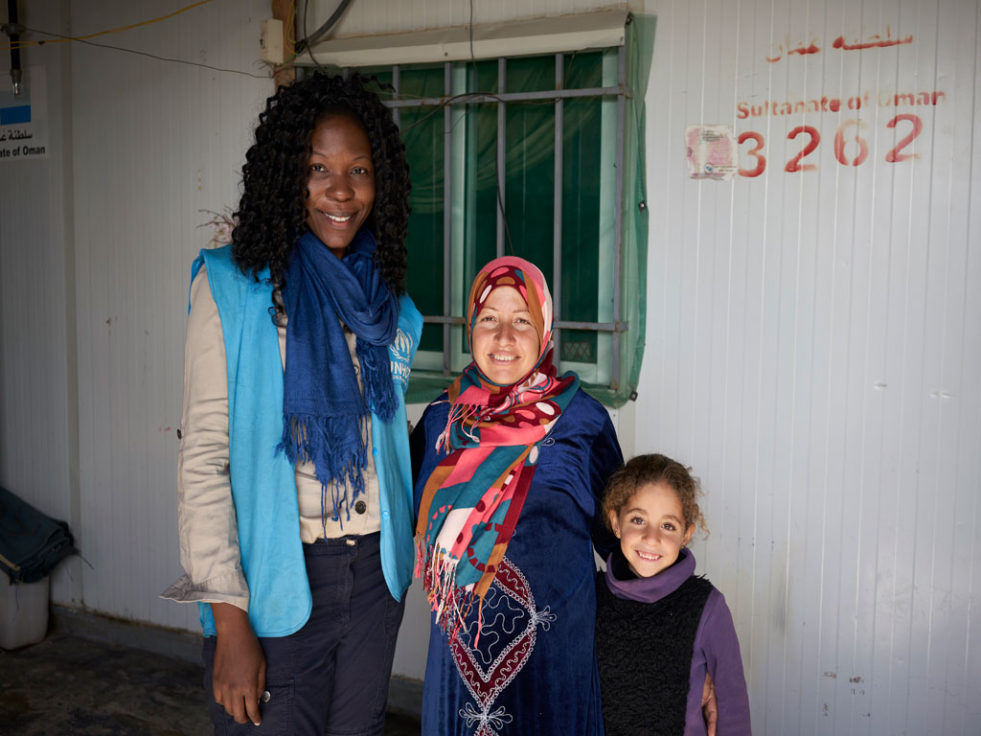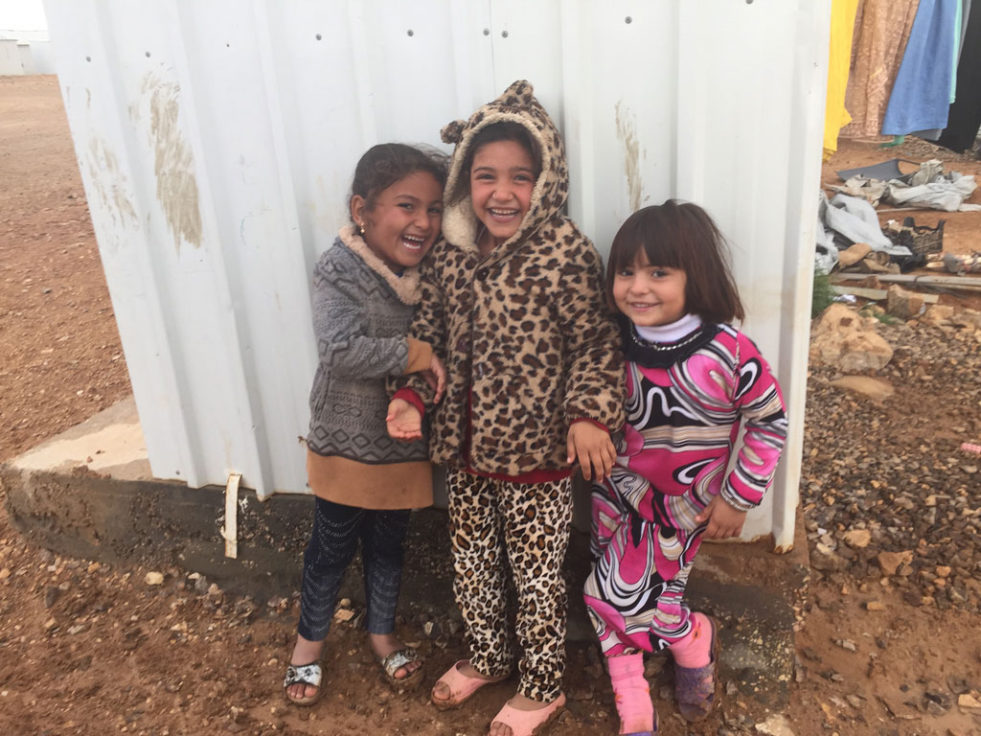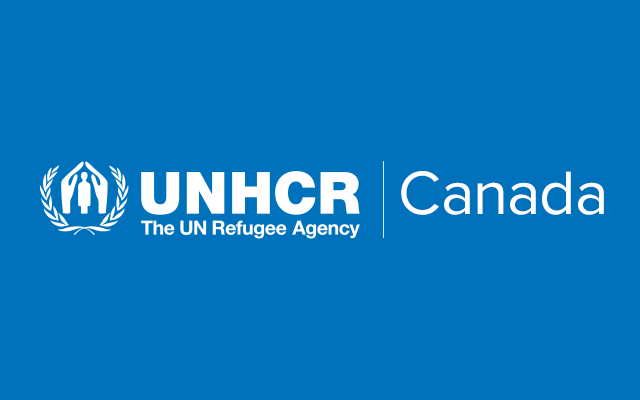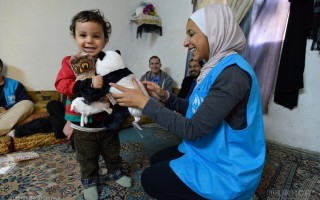
UNHCR Canada Senior Fundraising Communications Associate Lauren La Rose (left) meets with Syrian refugee Zeenab (centre) and her daughter Rahaf, 7, at their shelter at Zataari Camp in Jordan. ©UNHCR/David Azia
First came the scream. Then the giggles followed.
Sadly, I don’t speak Arabic, but the language of pure joy needs no translation.
It was etched all over the face of five-year-old Rajaa who stood alongside her two friends, huddled together, doubled over in laughter, steps away from the shelter she shared with her family, including her mother and four siblings, aged two months to 11 years.
I had spent most of the day at Azraq Camp in Jordan, about an hour’s drive outside of the capital of Amman. It was my first overseas mission with the UN Refugee Agency after more than a decade working as a journalist in Canada.

Five -year-old Rajaa (left) shares a laugh with her friends at Azraq Camp in Jordan.
©UNHCR/Lauren La Rose
In my previous and current posts, I had never witnessed first-hand the hardships of refugees beyond images and stories beamed onto my TV and computer, printed in newspapers, or broadcast over the radio waves.
I spent much of that first day in the field meeting with and hearing the compelling stories of Syrian refugees who had been forced to leave everything behind as they fled the conflict ravaging their homeland.
Yet in witnessing this moment with Rajaa and her friends, there was no sadness. I was just observing three adorable girls doing what friends do: basking in the delight of each other’s company.
The only jarring elements of this completely ordinary, everyday scene were the extraordinary circumstances surrounding these young girls that had brought their families to the camps.
As happy as I was to see first-hand the incredible work by my UNHCR Jordan colleagues to provide refugees with shelter and warmth during the winter months, I couldn’t help but feel heartbroken by what I didn’t see: there were few markers of home in these shelters. No family photos hanging on walls, or stacks of books or trinkets lining shelves.
Among a family of new arrivals at the camp, I recalled seeing a teenage boy sporting socks and flip-flops on a cool, crisp November day—the only footwear he had.
Many of the families I met spoke of being forced to leave Syria with only the clothes on their backs—and perhaps a spare set if they were lucky. Rajaa’s mother recalled how her family was desperately hungry, going without food for 48 hours, as they huddled together in the cold awaiting entry into Jordan.
Yet despite these unimaginable hardships, I experienced nothing but warmth and hospitality from each refugee family who invited us into their home. Trays of piping hot, sweetened black tea greeted us at virtually every turn as we visited homes within the camps and in cities. And even as tears fell onto cheeks and brows furrowed recalling painful memories, inevitably, smiles would always peek through as they spoke of their families, the imminent arrival of newborns, and future aspirations.
This is the hope that I carried with me as I left Jordan. I’m uncertain of what lies ahead for these families. But I am heartened and confident in the knowledge that their resilience and positive attitudes will help to sustain them, and that the promise of better and brighter days will hopefully await them all.





